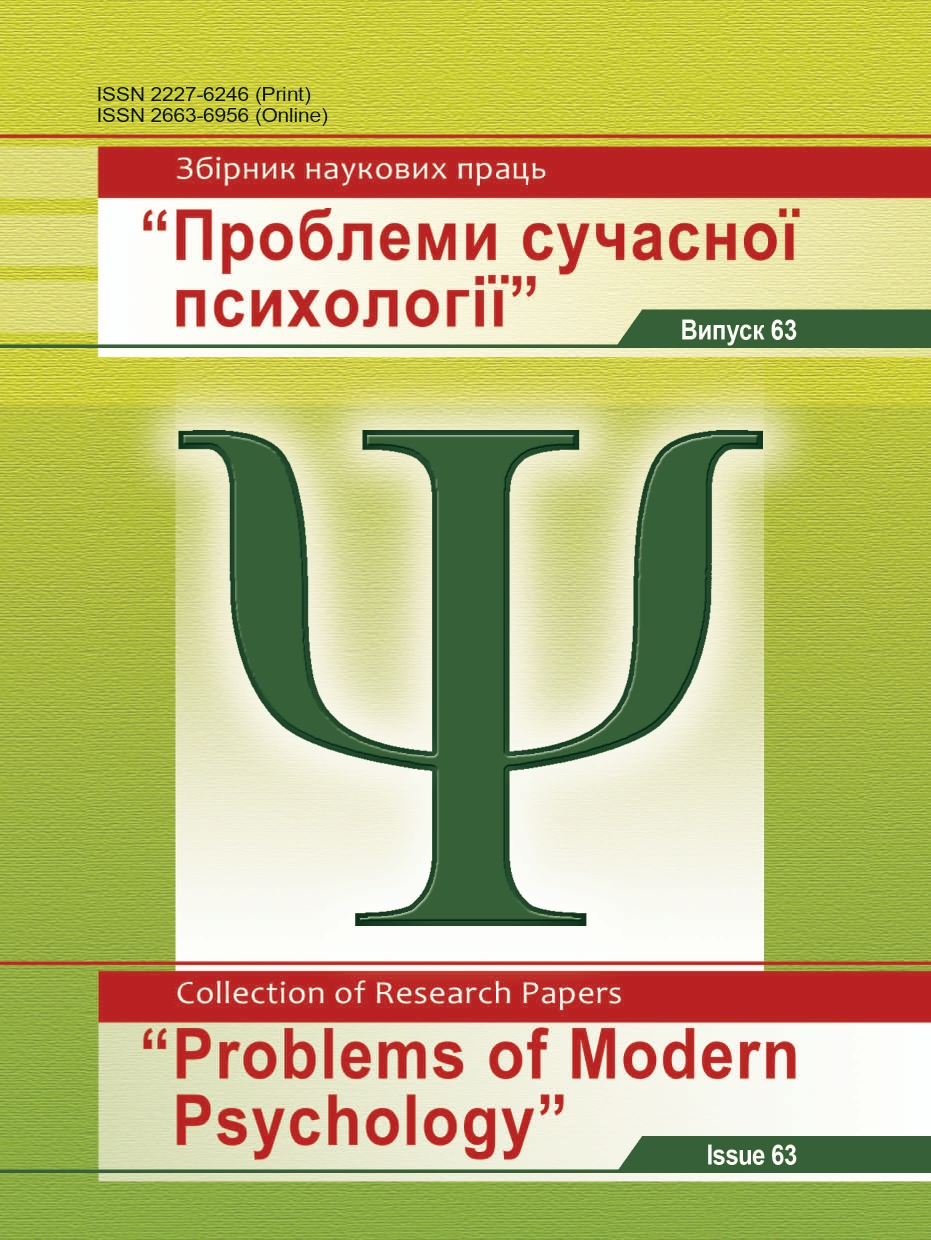Empirical Research of Professional Creativity of the Head of Educational Institution
DOI:
https://doi.org/10.32626/2227-6246.2024-63.242-262Keywords:
professional creativity, a creative reinterpretation of stereotypes, meaning-making, changes in the entire life process, life-making, constant personal development, non-standard and unique ideasAbstract
The aim of our research is to show the concepts of “professional creativity” and “creativity in the process of professional activity”; to organize the experimental research and to analyze its results; to describe the processes cause a creative reinterpretation of stereotypes – meaning-making – and changes in the entire life process – life-making; to show the results of empirical researches of professional creativity of the head of educational institutions.
Methods of the research. The following theoretical methods of the research were used to solve the tasks formulated in the article: a categorical method, structural and functional methods, the methods of the analysis, systematization, modeling and generalization. The experimental method was the method of organizing empirical research.
The results of the research. We proved, that if there was no personal meaning in the process of professional activity, for the sake of which professional activity would be carried out, and only the objective orientation of this activity was expressed. Then such activity would not take the form of creative activity, it would not reflect the actual spiritual search on oneself that is meaningful for a person. The internal objective determinants, the objective orientation of the process of professional activity allows the manager to find his/her own personal meaning, and only when the manager clearly understands why he/she will carry out creative activity, its goals and values will be determined. Only in the case when the process of professional creativity acquires a personally significant meaning for the manager, only then this activity can be considered in a creative aspect, in the paradigm of the manager’s acquisition of personal meanings and the formation of his/her creative individuality. Thus, the professional creativity of a manager is understood by us as a conscious, purposeful, active process of the unique activity of its kind, aimed at finding a new, independent, innovative and original way of managing the activities of subordinates with the aim of highly effective creative resolution of managerial tasks and problems.
Conclusions. The results of professional creativity are: a new understanding of the subject of activity – the creation of new ideas, programs, concepts, projects, paradigms, aimed at obtaining fundamentally new results, which make it possible to involve a wider social community in creative cooperation; the emergence of new ways of carrying out professional activities, hitherto unknown technologies, activity algorithms, etc. Professional creativity of the manager is accompanied by constant personal development – the need for new, original, non-standard and unique ideas.
Downloads
Published
How to Cite
Issue
Section
License
Copyright (c) 2024 Nabochuk Alexander

This work is licensed under a Creative Commons Attribution-NonCommercial 4.0 International License.
Copyright
The Editorial Board has the full right to publish original scientific papers containing results of theoretical and experimental research works which are not currently subject to review for publication in other scientific editions. The Author shall transfer to the editorial board of the Collection the right to spread the electronic version of the paper, as well as the electronic version of the paper translated into English (for papers originally submitted in Ukrainian and Russian) by all kinds of electronic means (placement at the official website of the Collection, electronic databases, repositories etc).
The Author of an article reserves the right to use materials of the paper, without approval with the editorial board and the founders of this Collection: a) partially or fully, for educational purposes; b) for writing own dissertation papers; c) for preparation of abstracts, conference reports and presentations.
The Author of an article can place electronic copies of the paper (including the final electronic version downloaded from the official website of the Collection) at:
- personal web resources of all Authors (websites, webpages, blogs etc.);
- web resources of the institutions where the Authors are employed (including electronic institutional repositories);
- non-profit public access web resources (for example, arXiv.org).
But in all cases, it is obligatory to have a bibliographic reference to the paper, or a hyperlink to its electronic copy placed at the official website of this Collection.






